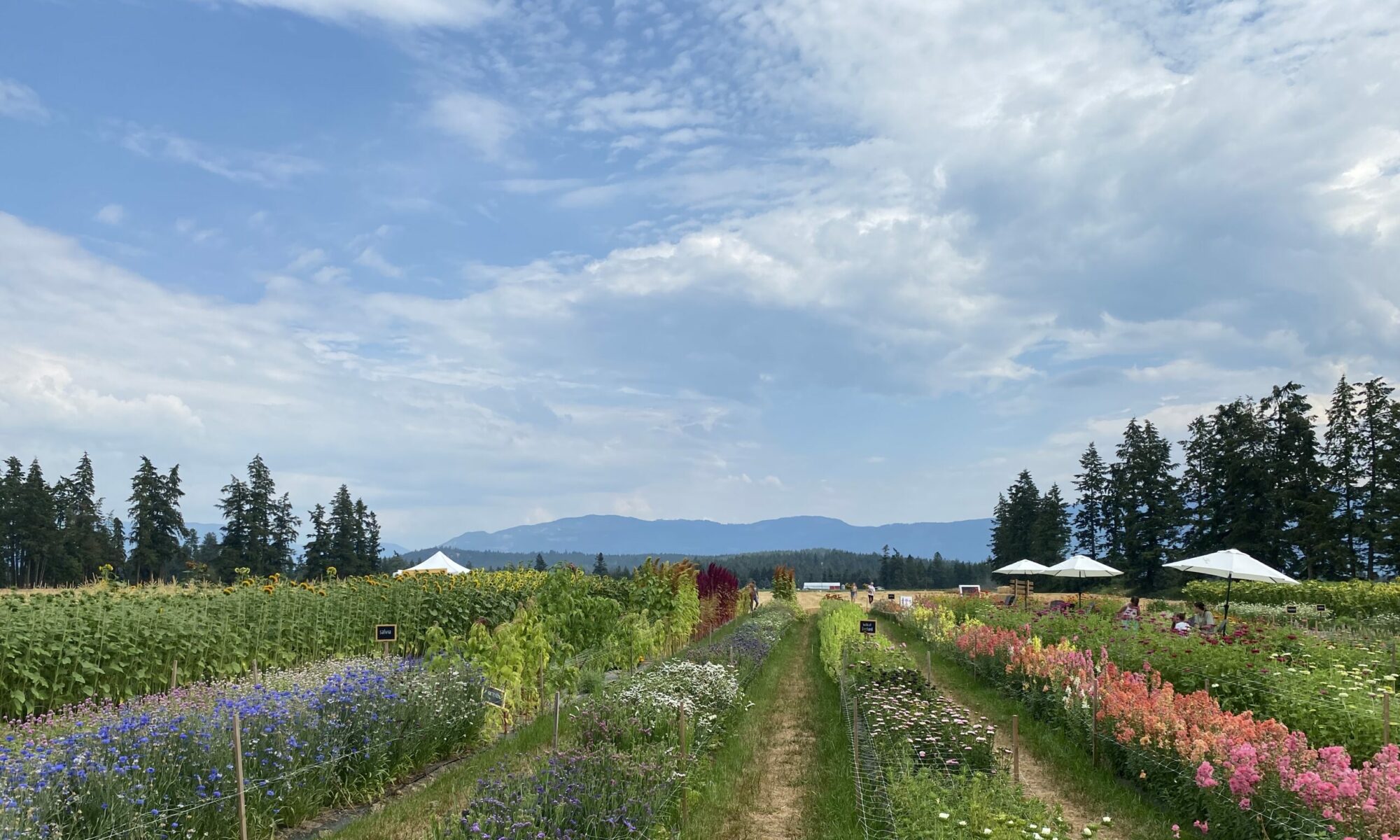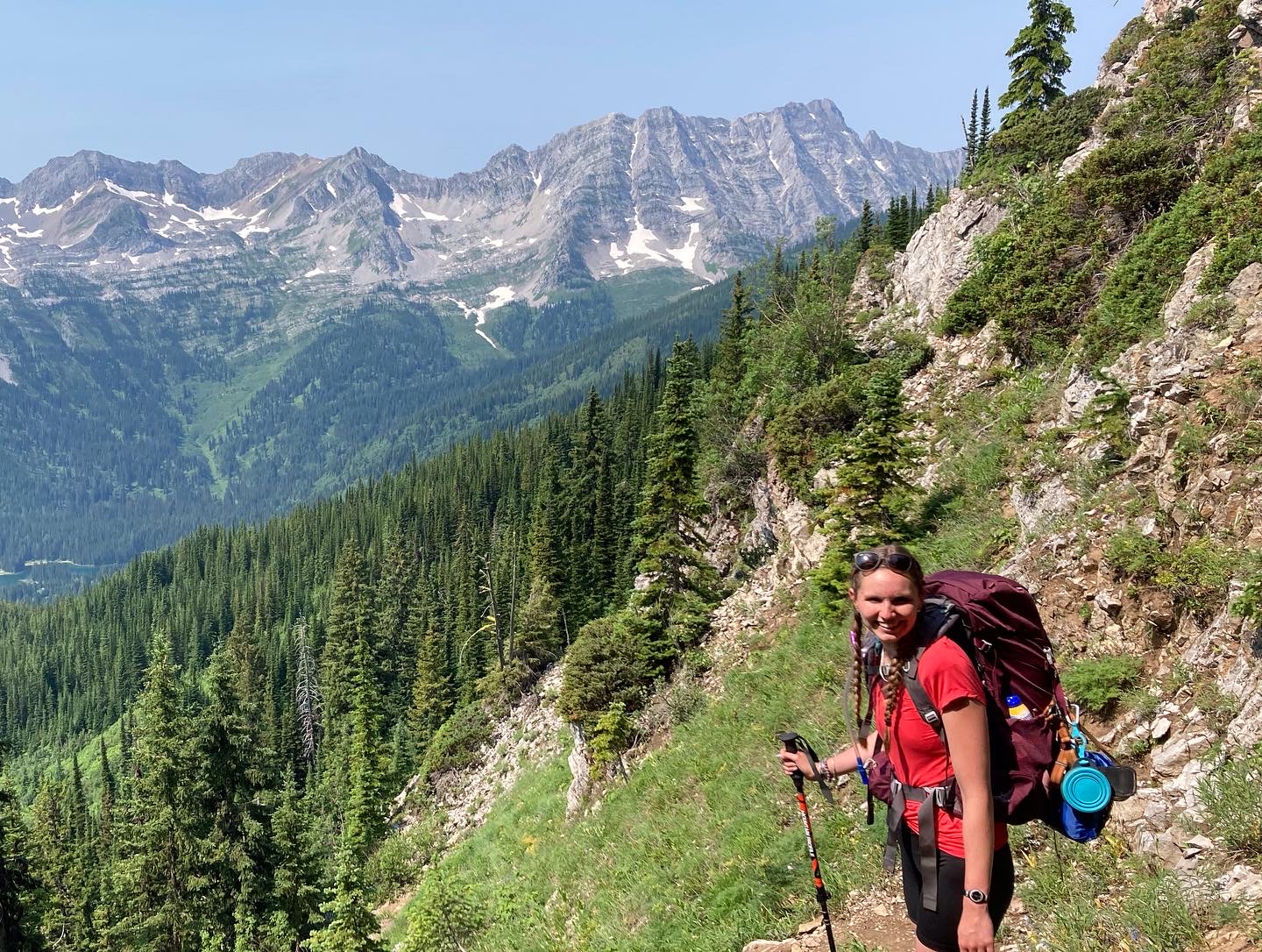Within the Human Rights and Social Justice Program the two classes that had the most experiential learning integrated into the material were the HRSJ 5020- Indigenous Ways of Knowing and HRSJ 5710- Food, Art, and Community Empowerment. These two classes had various field work, guest speakers, and site visits that were set up for us to participate in. Each one of these experiences was vastly important to a deeper and more grounded understanding of the material. In the Indigenous Ways of Knowing class we had three particularly impactful classes for my experiential learning. First we went to Paul Lake for a language lesson with Elder Harold Eustace. I loved the very essence of this class because it was absolutely out of my wheelhouse and the way in which I am used to learning. The class was casual. We all sat in a large circle near the lake on a stunning fall day listening to Harold share stories about his previous nomadic life, how his parents had hid him and did not allow him to go to Residential schools, and about how he has authentically preserved his language because he has continued to speak and teach throughout his life. Harold brought some items to showcase fishing and traditional ways of living and taught us the words in Secwepemc. He also taught us how to introduce ourselves and some very basic phrases. What I got most out of that day was the pace. I found a deeper understanding for slowing down and listening in close to Harold, nature, and my own body. This was something that I carried close to me throughout the rest of the program and something I will carry forward in my everyday life.
The second class that was very impactful and was so moving it was emotional for me was the visit to the Residential School in Kamloops. Elder Doe Thomas came with us and shared her own story of living within the Residential School and her own experiences with having to live away from family and losing elements of her cultural identity. The school itself has been reclaimed by the Secwepemc people and now hosts a daycare facility and community events but this does not take away the ambiance that horrible things happened there. We did not get to complete the full tour of the facilities due to time constraints but we did get to see a few areas including the gym and kitchen. Although Elder Doe spoke about the difficulties that she faced within the school and the residual and intergenerational effects that the school has had for her she spoke a lot of resilience. This is something that is so important and that I loved to hear from her about because she so eloquently creates and advocates for solutions. She is a huge inspiration for myself and I was moved to hear her speak and see her walk the grounds of the Residential School with confidence sharing stories of laughs and good times but also sorrows and hardships. Her resilience and the way in which she carries herself moved me to think of ways in which I can improve myself both academically and personally to be the best I can for those I care about and to help influence change for the better.
The final class within the Indigenous Ways of Knowing course that was profound to me was the lecture by guest Shawn Wilson who is an Indigenous Scholar and the author of the 2008 book; “Research is Ceremony: Indigenous Research Methods” Shawn spoke about how research is sacred and that practice of research should be performed in this way. He also spoke of inclusion of communities and participants in research and the importance of their input. One of the most interesting pieces of his presentation was the idea of perspective. Shawn showed “traditional” maps of the world from a western perspective and showed the size of countries in relation to others. Western countries of power are depicted as larger in scale as compared to places such as China or the entire continent of Africa. He then showed a photo of a scale version of the world, and to me it looked absolutely distorted. But this was my awakening that my perspective on many things has and will always be distorted until I take the time to learn the truth. Shawn pushed me to the understanding that my own unconscious and systemic biases will always affect me until I change my own narrative.
There were a few classes that impacted me deeply within our Food, Art, and Community Empowerment class but not in the ways one might expect. The class unexpectedly drew light on how Thompson Rivers University still struggles with their own inclusivity practices and how as a university there are many things we can work on and advocate for without even leaving the grounds. One of our classes we toured a garden in the very back of campus that is meant for the environmental studies and horticulture programs. We had to be let in through a locked gate to see a beautiful orchard, amazing amounts of veggies, beehives, and a plethora of other plants. This seclusion of the space meant that much of the fruit was rotting on the ground as it was not being tended to diligently during the harvest times and that even though many students struggle day to day with food security, healthy and sustainable food was secretly going to waste on our very campus. Secondly we had to take a bus to one of our field trips. It was noted that there are no accessible buses available from Thompson Rivers University for use by their students for off campus trips meaning that students that had any diverse mobility needs were not able to attend our trip. I found this profound being in a Human Rights and Social Justice class and seeing such a blatant injustice on the part of the university. The class showed us beautiful spaces and places but because of the nature of our food systems and the lack of food sovereignty within our community and country at large the field work often left me with more questions than answers. Often the owners and operators of the spaces that we visited felt the constraints themselves from governments both federal and municipal for funding to keep the programs running and the doors open. As well as the pressure to gain capital and expand often with the risk of negating the very reason they started the business. To help mitigate the issues surrounding food security and food sovereignty for all.
Each of these experiences for learning outside of the classroom were deeply impactful for myself and it was valuable to have such a vast number of occasions that we were able to be in community learning alongside Elders and other community members. It was important to juxtapose the injustices that we were learning and studying in class to the very real places and people with whom the injustices are affecting every day.

